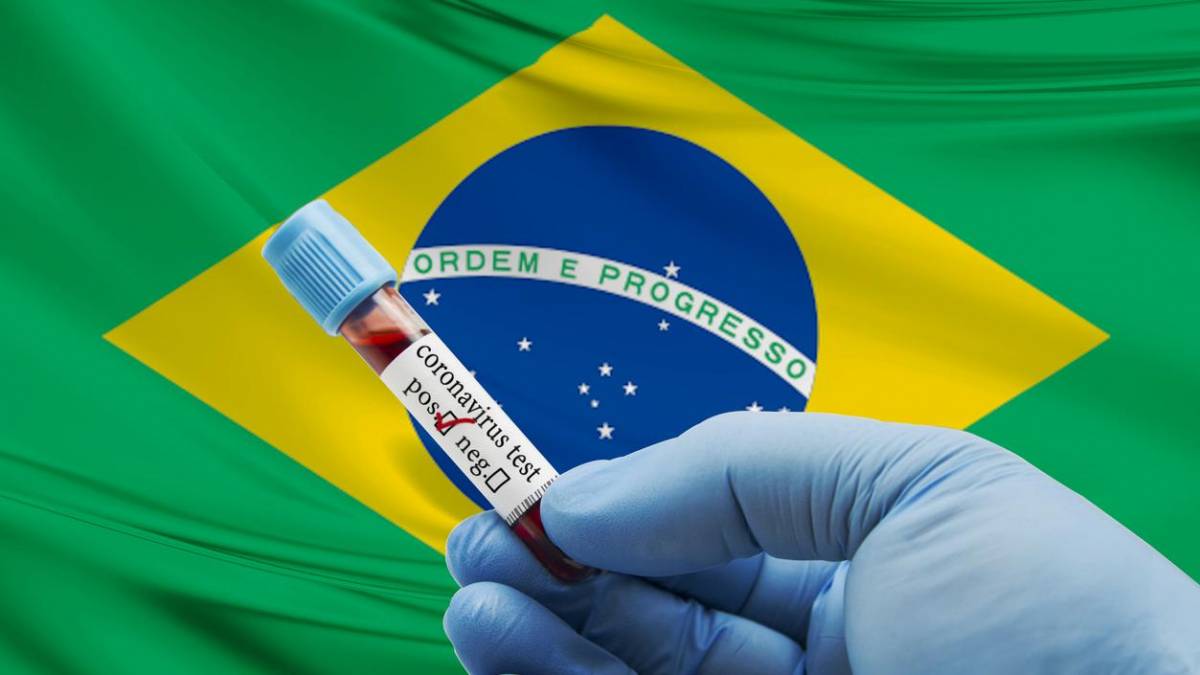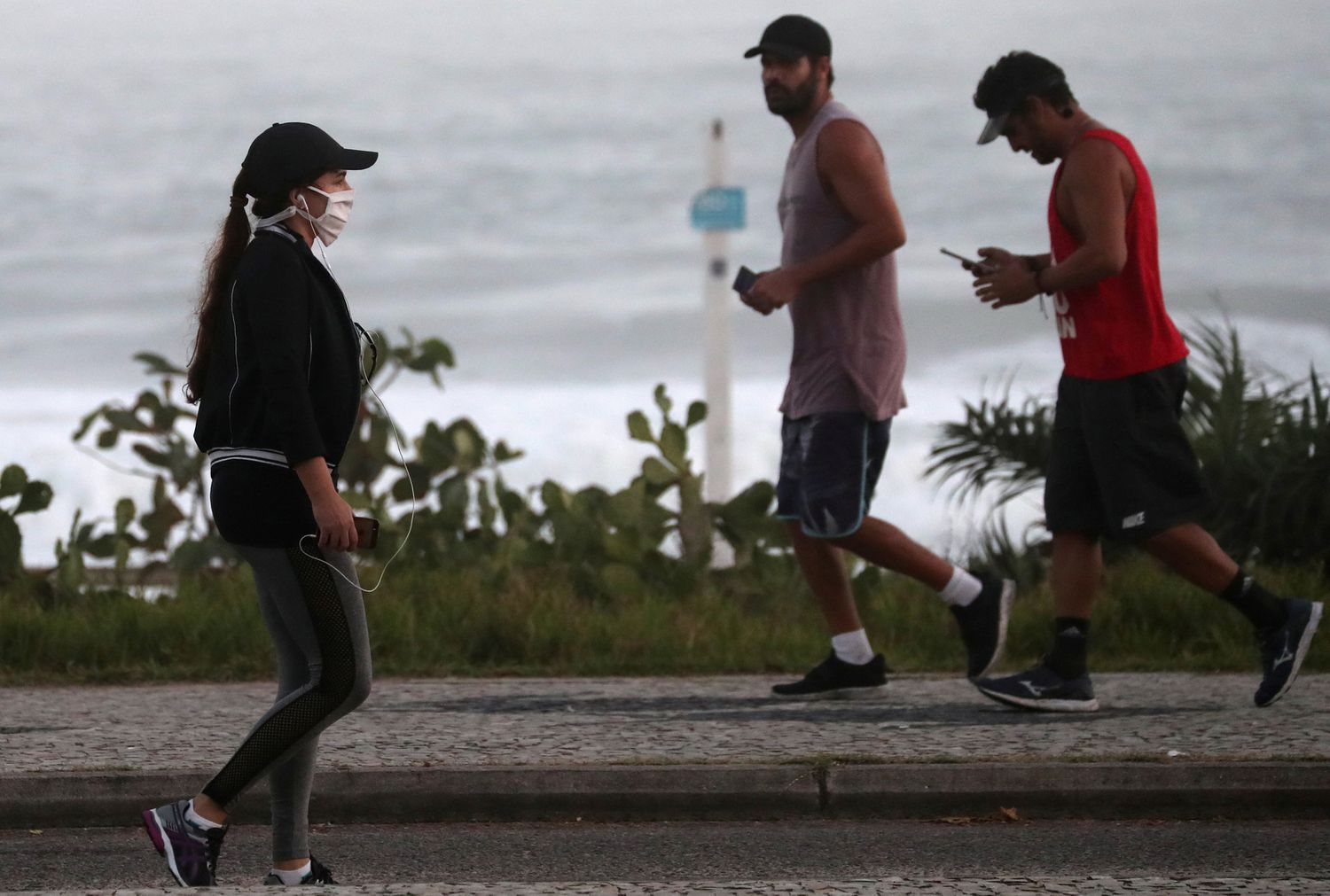RIO DE JANEIRO, BRAZIL – Brazil reported a record daily increase in new coronavirus cases on Saturday. Between Friday and Saturday, there were 1,222 new confirmed cases, which increased the number of people infected in the country to 10,278.

In the same period, there were 72 deaths, totaling 432. There was a 20 percent increase in the total number of deaths and a 13.5 percent increase in the number of infections. According to the Ministry of Health, the country is expected to have successive daily record highs until the situation is normalized and most of the population has had contact with the disease.
Moreover, the rate should rise as the country manages to test a larger number of people, overcoming the current testing shortfall. This is one of the features of the pandemic, which since February has had few cases recorded in Brazil.
“Probably, every day the numbers of cases will break the record of the preceding day,” said the portfolio’s executive secretary, João Gabbardo dos Reis. Stabilization would come after the majority of the population comes into contact with the virus, that is, if they become infected, even if they do not present symptoms of the disease.
The increase in cases occurs at a time when five states are on the verge of entering the hardest stage of the pandemic: that of “uncontrolled acceleration” of the disease, the name used by the Ministry of Health to explain the existence of a spiral of cases and a great burden on the health system.
These states are São Paulo, Rio de Janeiro, Ceará, Amazonas, and the Federal District. “We expected it from the beginning. [In these states] there is a greater international travel ratio than in the others. The challenge in these locations is to slow the pace of contagion so that the health system is not overloaded in order to attend to the most critical cases where the use of beds in Intensive Care Units (ICUs) is required.
The mortality rate in Brazil has not increased substantially, it is around 4.2 percent. Despite the record increase in cases and deaths, the Health officials hope that it will drop as more people are tested.
In the coming days, as soon as they arrive, the 410,000 rapid tests procured by the government should begin to be used. In addition, 500,000 tests that were donated by mining company Vale will be submitted to analysis. The target public of the first stage of testing is health professionals.
The aim is that those who have already had the disease, and therefore have antibodies, may come out of isolation to reinforce care in hospitals and clinics throughout the country.
People who have already contracted the virus, even if they have contact with it again, show a response from the body that prevents the virus from multiplying – this is the same effect of vaccines, which are still in early stages of development.
The government is working with the estimate that 86 percent of people who become infected will not display symptoms, and that most of the population will end up becoming infected. “It’s inevitable, everyone will have contact with the virus. What we need is time to deal with it,” he said, in reference to the need to structure the health service.
Only from that moment on, when the system is properly structured, could a discussion be started about relaxing the social distancing measures that have been enforced by states and municipalities.
President Jair Bolsonaro advocates this relaxed approach, but health officials are reluctant to support it.

“The situation would be much worse if Rio and São Paulo hadn’t imposed social distancing measures,” said the executive secretary. This is the same finding as that in a technical note, published on Saturday morning by the Ministry, which states that in São Paulo the rate of transmission of the virus has dropped, following measures such as closing businesses and parks.
According to Gabbardo dos Reis, the debate about when to reduce or extend the isolation rules depends not on the size of the cities, as Bolsonaro says, but on the incidence of the disease in the municipal area.
He said that if a municipality that has not recorded any cases closes for a long time, inevitably when it opens, a large number of the population will become infected and end up overburdening the health system.
“This process of closing and opening is not permanent. Someone has closed now, and then they will open. We’ll have to balance it. It opens, then it closes, it can decrease the number of cases. That’s the desirable thing, not the exponential growth and then we’re left with no ability to respond,” stressed the Ministry’s number two.
In any event, it is clear to him that this is not the time to reduce the measures restricting the circulation of people because the health care system still needs to be reinforced. In the coming weeks, 32,000 new ventilators are expected to be installed in ICUs for the most critical cases.
From this total, 15,000 were purchased from China and another 17,000 were negotiated with Brazilian companies. This equipment will be distributed as demand increases in each state. It will no longer be distributed as initially planned by the Ministry, which was to allocate a larger quantity to the most populous regions.
In the effort to mitigate the impact of the disease, the Ministry still faces an obstacle. According to Gabbardo, 1,000 ventilators that would be allocated to ICUs here to attend to critical coronavirus cases have been blocked in Argentina.
The company that won the bid to supply the ventilators tried to shipped the equipment to Brazil, but it was blocked at the border between the two countries. “Argentina did what we were doing,” said the secretary. Last month, the Brazilian government banned the exporting of equipment that could be used to fight the disease.
Source: El País

